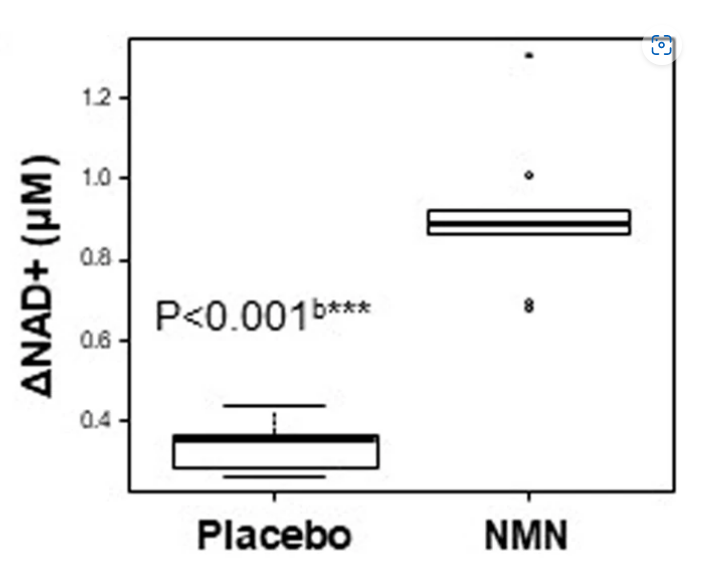Twelve Weeks of NMN Supplementation More than Doubles NAD+ Levels and Improves Muscle Function, Researchers Find
Japanese scientists show administering NMN to aged men more than doubles blood NAD+ levels and enhances walking speed and grip strength.
Highlights
- 250 mg of NMN per day for 12 weeks more than doubles blood NAD+ levels in healthy males older than 65.
- The supplementation regimen improves walking speed and grip strength in the aged men.
- These findings suggest NMN supplementation may be used to ameliorate age-related muscle deterioration.
Nicotinamide adenine dinucleotide (NAD+) is an essential molecule for cell energy generation, DNA repair, and immune function. Numerous age-related cardiovascular, neurological, metabolic, and muscle diseases have been linked to falling levels NAD+ in rodents and humans. Supplementing with its precursor nicotinamide mononucleotide (NMN) restores NAD+ levels and mitigates age-associated physical decline in rodents. A major remaining question is whether raising NAD+ levels with NMN can do the same for humans.
Yamauchi and colleagues from the University of Tokyo report in Nature Aging that 12 weeks of NMN supplementation more than doubles blood NAD+ levels and improves walking speed in aged, healthy men. These findings recapitulate data from previous studies showing that NMN supplementation boosts blood NAD+ levels in humans. Moreover, the study suggests NMN supplementation may potentially offer a means to mitigate age-related muscle deterioration (sarcopenia).
NMN More than Doubles Blood NAD+ and Improves Walking Speed
Since rodent studies have shown a beneficial correlation between boosting NAD+ with NMN and mitigating age-related physiological decline, the Japanese researchers measured NMN’s effects on blood NAD+. They found that NMN supplementation more than doubles NAD+ concentrations in the blood of aged men. What’s more, levels of NAD+ synthesis metabolites like nicotinic acid mononucleotide (NAMN) increase with 12-week supplementation. The findings illustrate that longer-term NMN supplementation increases synthesis of NAD+ and boosts its levels in the blood.

To find whether increased NAD+ levels confer improved muscle performance, Yamauchi and colleagues examined walking speed and grip strength. The research team found that at six and 12 weeks of NMN supplementation, walking speed and left hand grip strength significantly improved. However, right-handed grip strength did not improve. This means that enhanced physical function from NMN supplementation may provide a way to mitigate age-related muscle weakness and endurance.
“In this study, we reported that the chronic oral supplementation of 250 mg of NMN per day is safe and a well-tolerated and effective strategy for boosting NAD+ metabolism in healthy older men,” said Yamauchi and colleagues. “In addition, our exploratory analyses of the effects of NMN supplementation on the physiological functions suggest NMN improves muscle strength, which is an important clinical indicator of aging.”
Does NMN Increase NAD+ Levels in Other Organs?
A limitation to the study was that it did not examine whether NMN supplementation boosts NAD+ in organs like the brain, liver, or kidneys, which will be paramount to figuring out whether NMN may provide a way to counter multiple age-related diseases associated with these organs. However, Yamauchi and colleagues did measure sensory and cognitive functions, along with liver fat mass and insulin sensitivity, yet they did not find any differences upon taking NMN.
This study may constitute the tip of the iceberg in finding out the benefits that NMN supplementation confers for aging adults. Aside from muscle function, future studies will need to examine NMN’s effects on multiple age-related diseases, and these clinical trials may need to extend longer than 12 weeks to discern meaningful effects.
Model: Men aged 65 years and older
Dosage: 250 mg per day of oral NMN for 12 weeks

